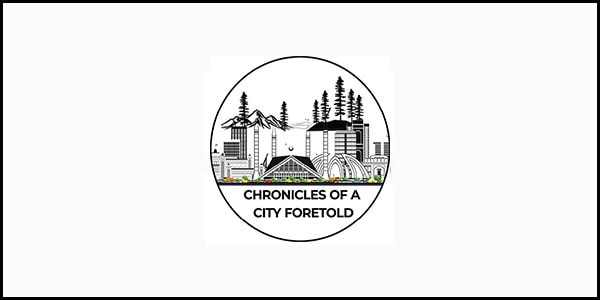Urban Bystander
Islamabad was born neat and green, a city written in lowercase, built in the hush between a prayer and a pause.
The hills stood like patient uncles, the roads obeyed geometry, and the air carried the sound of leaves thinking. It was a place where silence worked full-time and light spoke in whispers.
That afternoon, Lahore’s ghost visits, wheezing, fragrant with kebab smoke and nostalgia. “I was once a garden with a city inside,” he says, “and now I am a sizzling platter with smog on top. I grew from three to fifteen million, paved five hundred square kilometres, and lost seventy per cent of my green in two decades. My seasons shrank to two, summer and smog.”
He sighs like a broken harmonium. “Beware the moment beauty is renamed beautification. That’s how it begins.”
Babloo the pigeon, cooed softly: “Tree cover gone, but optimism still flowering on billboards.”
Nosy Mynah, head of gossip and statistics, clicked her beak: “Three per cent green, a hundred per cent grease.”
Lahore’s ghost leaned closer. “Take the hint, little brother. You’re rehearsing my script.” Islamabad looked away. In just two decades, its green area had fallen by over a third, and its built-up spread had grown more than fivefold. The hills, once distant confidants, now felt hemmed in, their edges fenced, rezoned, renamed. Palms, imported and confused, stood where amaltas once wrote yellow into the wind, punctuation marks in a sentence that had forgotten its grammar.
Babloo fluttered low, reading from his notebook: “Built-up rising 523 per cent. Canopy falling 36. Faith in master plan, statistically undetectable.”
“Beautification continues,” Mirza noted. “Ecology optional.”
The ghost smiled a smoggy smile. “You’re beginning to sound like us.”
Islamabad tried art instead. Once, two golden hands held two mute planets on Margalla Avenue. the city laughed, the sculpture resigned, and the embarrassment stayed like a receipt. On Constitution Avenue, a metallic zoo of deer and cranes now twinkles under sodium light, more unsettling than civic. “Aesthetic emergency declared,” Mynah recorded. “Budget utilised, taste symbolic.”
When pavements vanished at intersections, the city began walking uphill. The trails filled with paper cups and Bluetooth anthems. Partridges rehearsed panic; a panicked deer forgot its way home. Babloo sighed, “If the map won’t mark parks, the hills will carry the footfall.” “Exercise continues, ecosystem retires,” Mynah added, logging the date.
Where villages once folded into wheat, there are housing schemes with promises of gated serenity. Locals still whisper the old curse: May you never reach in one go. The prophecy holds, every route sprouts one more underpass, and each shortcut leads to a queue.
Somewhere above the hills, a small plane circles still. The pilot mistook the new shoulder lights of a city artery for a runway. When he tried to land, the city blinked at him, all neon, no welcome. The plane forgot its destination and now wanders over Margalla like an absent-minded angel. “Navigation achieved, arrival deferred,” Mirza stamped.
Lahore’s ghost smiles sadly. “I sold my lungs to light my evenings. My stages became expos, my rivers became drains, my art turned into signage. Beware the restaurant that replaces your theatre; it will serve culture with extra ketchup.” Islamabad listens, pretending not to. It has learned the national art of dignified denial. A new corridor is announced; a tree apologises in silence. Somewhere, a wall paints a mural of a forest to apologise for the one it buried. Mirza stamped the night To Be Reviewed, which, in our dialect, means never, unless it rains. And Babloo looked at the paling hills and whispered, “At least the stars are still unpaid.” Both cities will survive, of course, even ulcers do.
The writer can be reached at [email protected]


